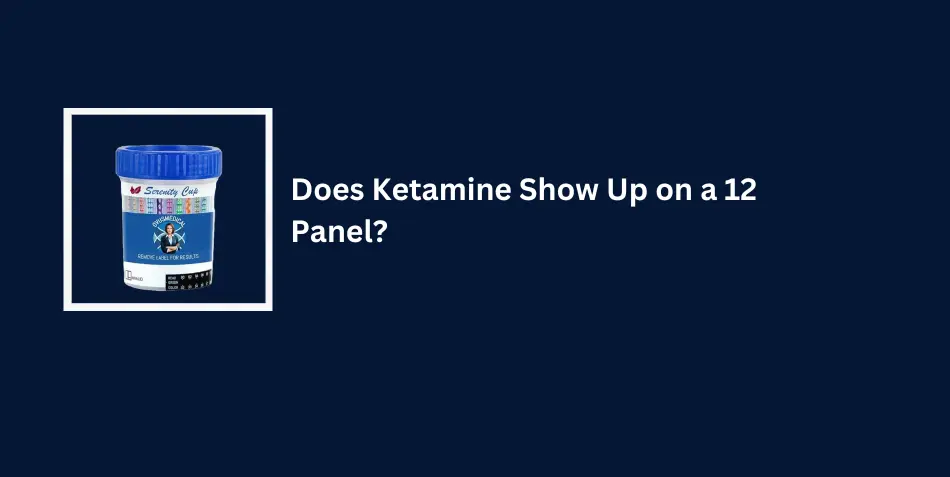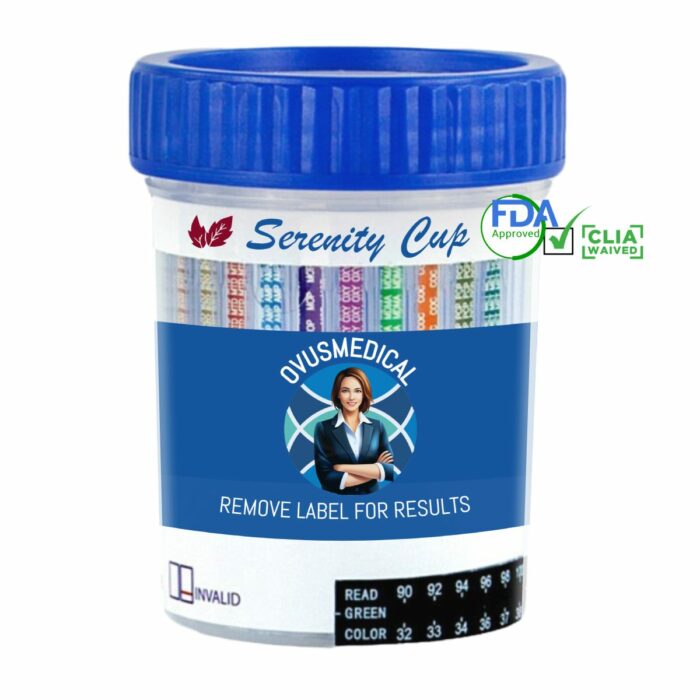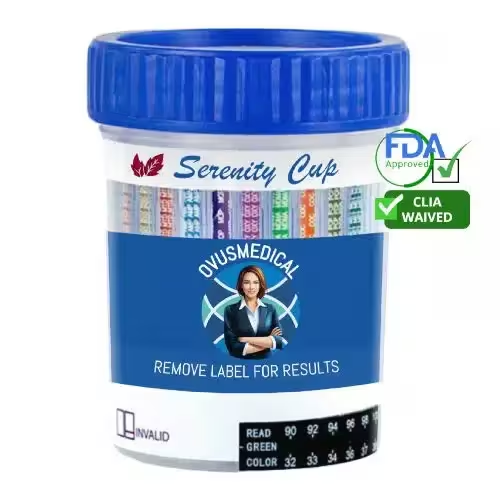When it comes to drug testing, a common question arises: Does ketamine show up on a 12 panel drug test? The answer is not as straightforward as it might seem. While standard drug panels are designed to detect a wide range of substances, the inclusion of ketamine testing often depends on the specific drug panel configuration. In this article, we’ll explore how ketamine is detected, what it shows up as, and how its presence in the body is tested.
Understanding the 12 Panel Drug Test
A 12-panel drug test is a comprehensive screening tool that detects the presence of multiple drugs in the body. Typically, this test checks for substances such as:
- Marijuana (THC)
- Cocaine
- Opiates (e.g., heroin, morphine)
- Amphetamines
- Methamphetamines
- Benzodiazepines
- Barbiturates
- Phencyclidine (PCP)
- Methadone
- Propoxyphene
- Ecstasy (MDMA)
- Oxycodone
However, ketamine is not always included in standard 12-panel tests. Special arrangements or extended panels are often required to detect ketamine.
Does Ketamine Show Up on a 12 Panel Drug Test?
Ketamine, a dissociative anesthetic used medically and recreationally, does not typically appear in standard 12 panel drug tests. This is because ketamine belongs to a unique class of drugs, distinct from the more commonly tested categories like opioids or amphetamines. However, some labs or employers might use an extended panel that includes ketamine screening.
What does ketamine show up as on a drug test? When detected, ketamine metabolites—primarily norketamine—are identified. This requires specific testing methods, such as gas chromatography-mass spectrometry (GC-MS) or liquid chromatography-mass spectrometry (LC-MS).
How Long Does Ketamine Stay in the Body?
The detectability of ketamine depends on several factors, including the type of test used, dosage, and individual metabolism. Below are the typical detection windows for ketamine:
- Urine Test: Detects ketamine up to 3 days after use.
- Blood Test: Detects ketamine within 24 hours of use.
- Saliva Test: Detects ketamine up to 24 hours after use.
- Hair Follicle Test: Can detect ketamine for up to 90 days.
These detection times highlight the importance of choosing the right testing method based on the required accuracy and timeframe.
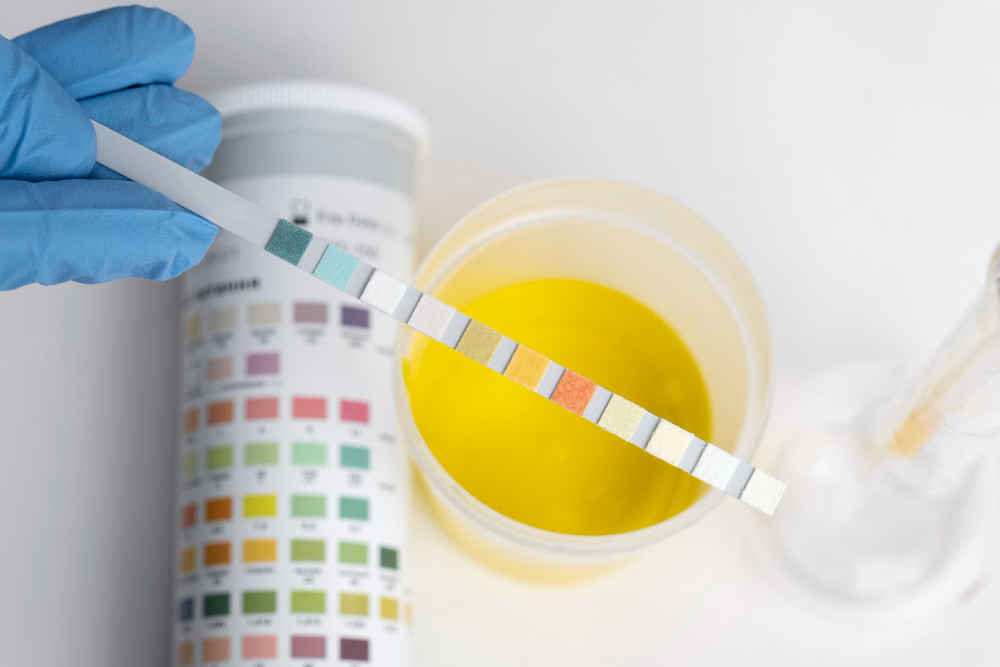
Why Test for Ketamine?
Ketamine misuse has increased in recent years, particularly in recreational settings. Testing for ketamine is essential for:
- Workplace Safety: To ensure a drug-free work environment.
- Rehabilitation Programs: For monitoring sobriety during treatment.
- Legal Compliance: For court-ordered drug testing or probation requirements.
Testing for ketamine provides valuable insights into drug use patterns and helps mitigate potential risks.
Ketamine Testing in Specialized Panels
If standard 12 panel drug tests do not include ketamine, specialized drug panels are available. These panels are tailored to detect ketamine and other less common substances. Such tests are particularly relevant for:
- Healthcare Professionals: In cases of medical malpractice or impairment investigations.
- Law Enforcement: For identifying drug ue in criminal cases.
- Clinical Research: To study ketamine’s effects and metabolism.
When selecting a drug test, it’s important to verify whether ketamine detection is included in the panel.
Pregnancy Drug Testing and Ketamine
Pregnancy introduces unique challenges when it comes to drug testing. Ketamine’s impact on fetal development is a concern, particularly in cases of misuse. For expectant mothers, pregnancy drug tests are tailored to identify substances that could harm the baby. While these tests focus on opioids, benzodiazepines, and amphetamines, they can be expanded to include ketamine if required.
At Ovus Medical, we offer a range of pregnancy drug test products designed to detect harmful substances quickly and accurately. These tests are easy to use and provide reliable results, ensuring the safety of both mother and child.
The Role of Ovus Medical in Ketamine Testing
Ovus Medical is a trusted provider of drug testing solutions, including specialized test panels that can detect ketamine. Our products cater to:
- Healthcare Facilities: For routine drug screenings.
- Rehabilitation Centers: For monitoring patient progress.
- Employers: For maintaining drug-free workplaces.
Our pregnancy drug tests are specifically designed to detect substances that may affect maternal and fetal health, ensuring peace of mind for healthcare providers and parents alike.
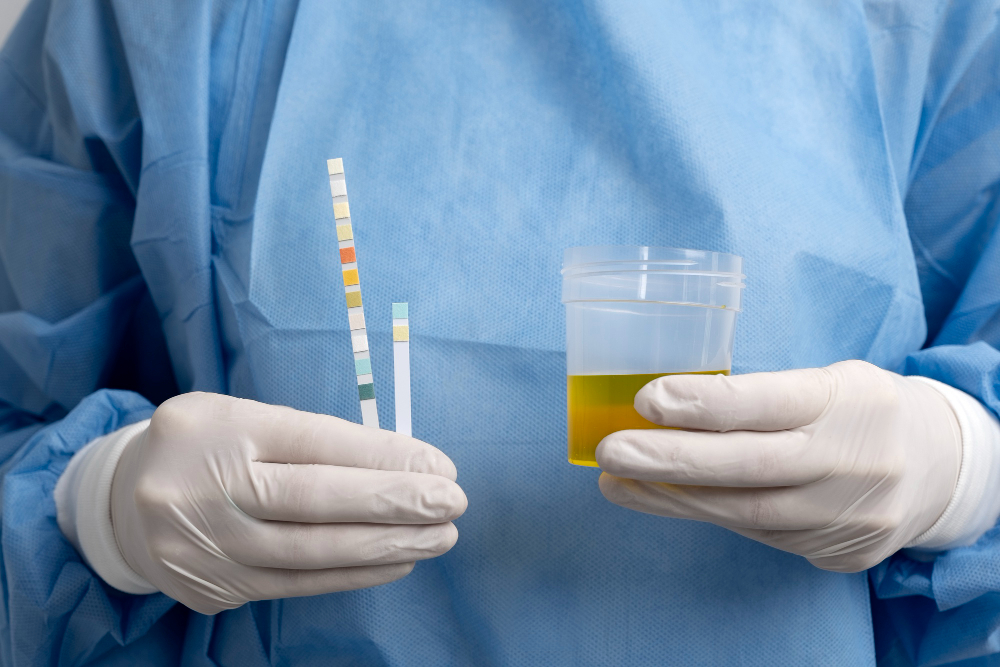
Common Myths About Ketamine Testing
Myth 1: Ketamine is undetectable.
Ketamine can be detected with the right testing methods. While not always included in standard panels, specialized tests effectively identify ketamine use.
Myth 2: All drug tests include ketamine.
Most standard drug panels do not test for ketamine unless specifically requested.
Myth 3: Ketamine stays in the body for weeks.
Ketamine has a relatively short detection window compared to other substances, making timely testing crucial.
How to Choose the Right Drug Test for Ketamine
When selecting a drug test, consider the following factors:
- Purpose of Testing: Workplace, legal, or medical.
- Detection Window: Urine tests are ideal for recent use, while hair tests detect long-term use.
- Accuracy: Choose tests with high sensitivity and specificity.
At Ovus Medical, we offer customizable drug testing solutions, ensuring you get the right test for your needs.
Conclusion
Does ketamine show up on a 12 panel drug test? In most cases, the answer is no, unless the panel is customized to include ketamine. Understanding the capabilities and limitations of drug testing is essential for accurate detection and effective intervention. Whether you’re a healthcare provider, employer, or individual seeking reliable drug testing solutions, Ovus Medical has you covered.
Explore our range of products, including pregnancy drug tests, and ensure accurate and timely results. For more information, visit our website or contact us today.
FAQ
Does ketamine show up on a 12 panel drug test?
No, ketamine is not typically included in a standard 12-panel drug test. Special panels or extended tests are required to detect ketamine.
How is ketamine detected in drug tests?
Ketamine metabolites, such as norketamine, are detected using advanced testing methods like GC-MS or LC-MS.
What are the typical detection windows for ketamine?
Ketamine can be detected in urine up to 3 days, blood within 24 hours, saliva up to 24 hours, and hair follicles for up to 90 days.
Why would I need to test for ketamine?
Testing for ketamine is important for workplace safety, rehabilitation programs, legal compliance, and monitoring sobriety.
Can I test for ketamine with a standard 12-panel drug test?
Standard 12-panel tests do not include ketamine unless specifically requested. You will need a specialized or extended panel to detect it.
How can I choose the right drug test for ketamine detection?
Consider factors like detection window, testing method (urine, blood, hair), and accuracy when choosing the right drug test for ketamine.
Are pregnancy drug tests capable of detecting ketamine?
While most pregnancy drug tests focus on opioids, benzodiazepines, and amphetamines, they can be customized to test for ketamine if necessary.
Can ketamine be detected in hair follicle tests?
Yes, ketamine can be detected in hair follicle tests for up to 90 days, making it ideal for detecting long-term use.
Are there myths about ketamine and drug testing?
One myth is that ketamine is undetectable. With the right tests, ketamine use can be accurately detected, even if it’s not part of standard panels.
How do I know if a drug test will detect ketamine?
Verify the specific substances included in the panel and confirm whether ketamine testing is available when selecting a drug test for accurate results.
You may also like…
-
12 Panel Drug Test Cup TCA
As Low As $2.29
FDA/Clia Waived
$3.09 Info & Price This product has multiple variants. The options may be chosen on the product page -
10 Panel Drug Test Cup
As Low As $1.89
FDA/Clia Waived
$2.89 Info & Price This product has multiple variants. The options may be chosen on the product page
